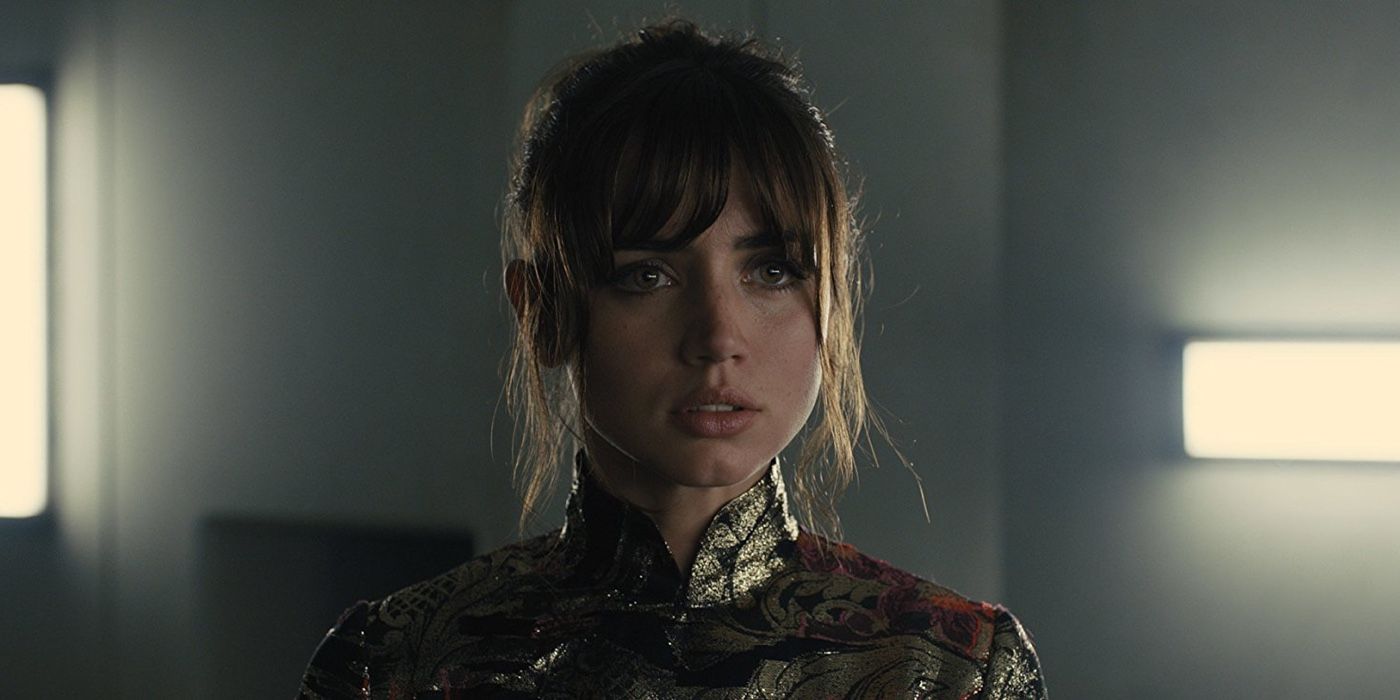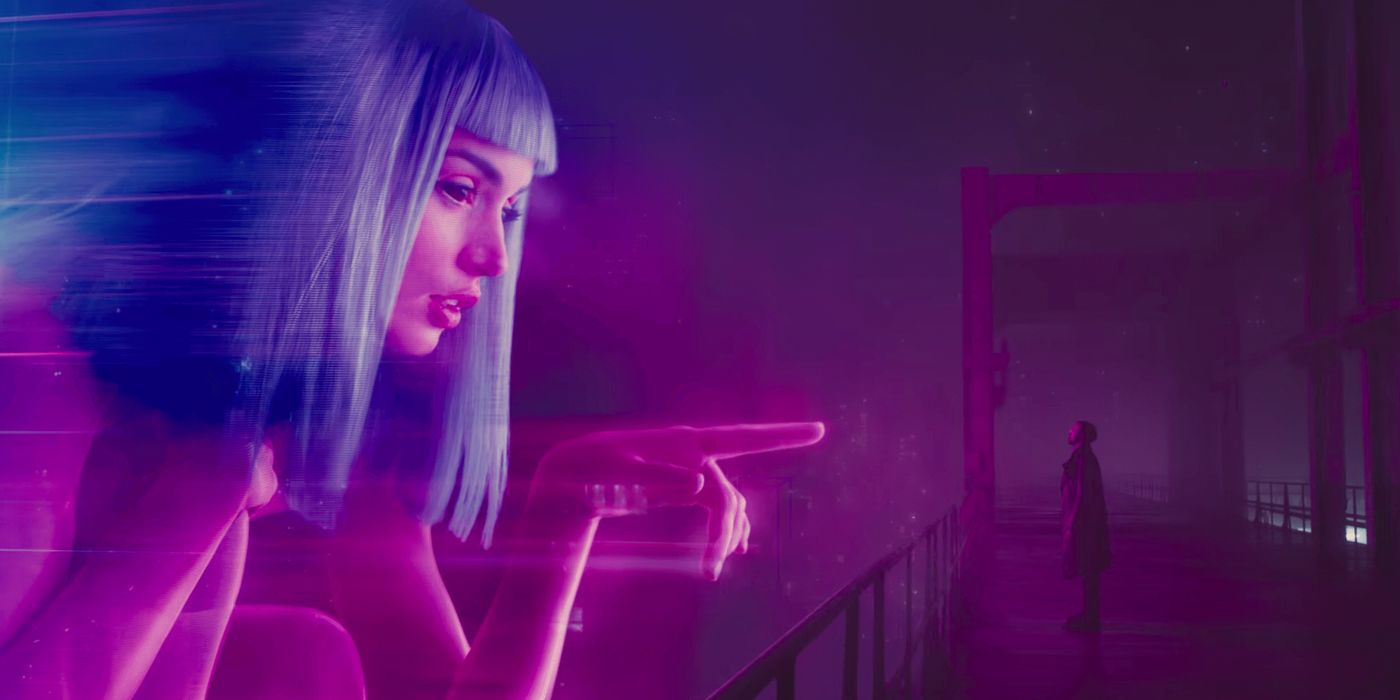It's one of the most ambiguous questions of Blade Runner 2049, but does hologram Joi genuinely feel love for K? The original Blade Runner was Ridley Scott's next project after the huge success of Alien. The movie was adapted from the Philip K. Dick novel Do Androids Dream Of Electric Sheep? and follows Harrison Ford's "Blade Runner," which is basically a cop sent to hunt and kill artificial humans dubbed replicants. Blade Runner is considered a classic now and is one of the most influential sci-fi films ever made, but it was a box-office dud upon release. It wasn't until the release of Ridley Scott's director's cut - which removed Ford's monotone narration and a hideously out of place "happy" ending - that it truly clicked with movie fans.
The movie would eventually receive a sequel with 2017's Blade Runner 2049, which somewhat inverted the premise by having a replicant Blade Runner hunting down Harrison Ford's missing Deckard. Against all the odds, Blade Runner 2049 proved to be almost as good as the original, featuring great performances, rich themes and a natural evolution of the world audiences first visited in 1982. Sadly, despite being showered in praise, the sequel was another box-office letdown. The franchise also received a sidequel, of sorts, with the 1998 Kurt Russell action film Soldier. Though there aren't any specific characters or plot points linking them, they're set in the same universe and it has numerous Blade Runner easter eggs.
The original Blade Runner was famous for posing several questions, including whether or not Deckard himself is a replicant. There's still disagreement on that latter to this day, with Ridley Scott declaring he is while Ford vehemently disagrees. Of course, one of the big ironies of the original is that the so-called replicants are the most human characters in the story, though exactly how much they feel is "real" or just programmed is another question. A key relationship in Blade Runner 2049 is between K and holographic girlfriend Joi (Ana de Armas, Knives Out).
Blade Runner 2049's Joi is an A.I. designed by the Wallace Corporation to cater to the desires of customers, telling them what to want to hear. K's Joi is depicted in this way, providing loving warmth when he returns home and when he learns he's might have been born from a replicant, she encourages his wish. She also merges with a prostitute later in the film so she can physically be with him. On the surface, Joi could be just acting out her programming in a very convincing way, but there are signs she may have evolved beyond it.
One of her earliest scenes in Blade Runner 2049 involves K removing her from his apartment's projector via an Emanator, which allows her to be portable. She seems to experience genuine happiness at being able to feel the rain, and later in the story, she chooses to come with K - via the Emanator - when he goes on the run. Before she's crushed by henchwoman Luv, she tries to tell K she loves him before the device is destroyed. The question becomes whether or not these feelings are real or just code?
Towards the end of Blade Runner 2049, K comes across a Joi billboard, who calls him "a good joe" - like his Joi did - and he seems to realize her feelings for him were probably simulated. This does spar him to rescue Deckard, an act made of his own free will after being manipulated by others his whole life. That's the ultimate question posed by the film about its artificial characters; are their simulated or "fake" emotions any less valid than that of a human? Joi genuinely believes she loves K and he feels the same. Blade Runner 2049 provides lots of signs she evolved beyond her programming, but the question of her feelings for K is left to audiences to decide for themselves.


